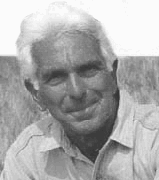The Most Important Skill in Therapy
March 29, 2017 by Dan Short
Filed under Psychotherapy
If there is any single skill that might be used to summarize what the most effective Ericksonian therapists are able to do really well, it would be the general ability to connect with others in deep and compelling ways. Whether you are describing the therapist’s use of effective communication, interpersonal flexibility, skillful observation, or love […]
The Trans-Mental and Trans-Temporal Problem Solver
December 15, 2016 by Dan Short
Filed under Ericksonian Therapy
I just recently delivered a talk at the 2016 Brief Therapy Conference in San Diego and made a promise to my audience that I would send a one page summary of the talk and attach a link to the slides, which can be found at my website. Milton Erickson often warned his students of the […]
Can You Be Like Erickson?
October 15, 2016 by Dan Short
Filed under Ericksonian Therapy
For my keynote address at the Erickson Congress in Puerto Vallarta, I shared a memorable experience when I was confronted with the urgent needs of a former patient of Milton Erickson. The man was experiencing a full-blown psychotic episode. He had the symptoms of paranoid schizophrenia and was absolutely insistent that he must “find Erickson” […]
Is Hypnosis Compatible with Non-Directive Process Work?
February 8, 2016 by Dan Short
Filed under Ericksonian Therapy
Throughout life, we find ourselves forced to make choices, “Do I choose A, or do I choose B?” And in most instances, it is a false dilemma. Dichotomous reasoning leads us to think, “If I do one, I cannot do the other.” Yet, often, we can do both. This is why Ericksonian practitioners are able […]
Tell Me a Story: The Power of Storytelling
June 21, 2014 by Brad Sachs
Filed under Soapbox
“Information brings knowledge, but stories bring wisdom.” These words guide my clinical work more than any others, for I have learned that it is the power of the patient’s story, rather than that of the patient’s dogged data, that defines and informs psychotherapy’s curative properties. Or, as Mark Twain once put it, “Never let the […]

 BOL: I hope our conversation will focus on the how-to of intervening in order to enhance the performance of organizations. You are a master of that art, but your most important work has focussed elsewhere: on understanding the nature of the organization,...
BOL: I hope our conversation will focus on the how-to of intervening in order to enhance the performance of organizations. You are a master of that art, but your most important work has focussed elsewhere: on understanding the nature of the organization,...  BOL: Alfred Adler’s name is better known to today’s therapists than are his ideas and methods. Your dedication to this body of work must be based on the belief that contemporary practice is diminished because Adler’s contributions are not...
BOL: Alfred Adler’s name is better known to today’s therapists than are his ideas and methods. Your dedication to this body of work must be based on the belief that contemporary practice is diminished because Adler’s contributions are not...